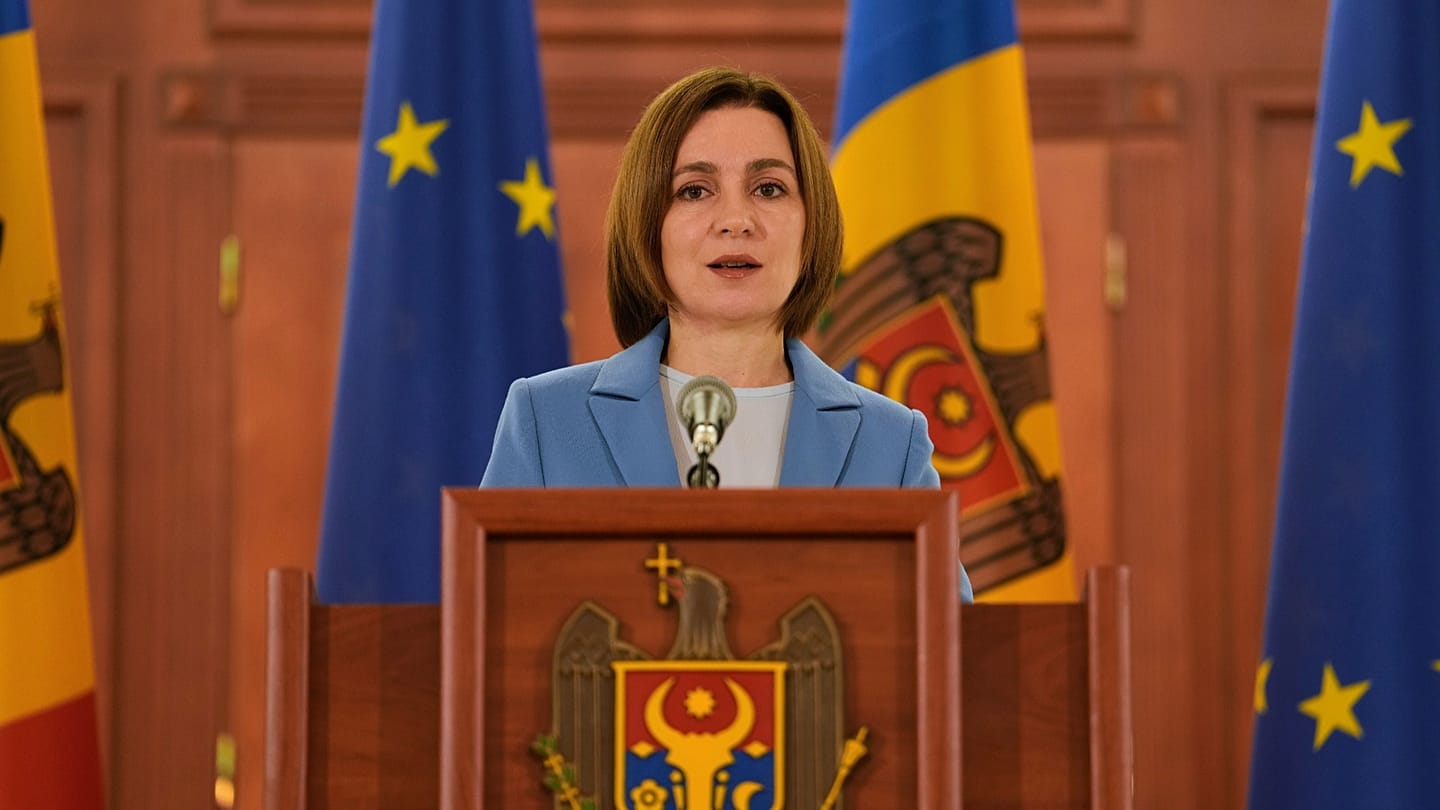
Moldova is committed to joining the European Union but the country needs “sustained engagement” and “clarity” from the bloc to make progress towards integration, Moldovan president Maia Sandu has told Euronews.
Since negotiations were formally opened with the EU in June 2024, Moldova “has shown determination and delivered on its commitments,” Sandu said in an emailed statement.
“What we need now is sustained engagement and clarity from the EU to keep enlargement as a strategic priority and to maintain the momentum for those who deliver.”
Sandu will lay out her expectations of the EU at Euronews’ “Enlargement Summit” next Tuesday in Brussels, the same day where the European Commission is set to praise Chișinău’s efforts towards integration in its annual evaluation of the candidate countries.
The bloc also consolidated support to Moldova’s EU integration by announcing up to €1.9 billion in funding for 2025–2027 under the new Moldova Growth Plan – the largest EU financial package since the country’s independence.
Still, the country facing a complex path ahead, caught in the crossfire of Hungary’s veto to Ukraine’s bid for membership. Chisinau filed its application to join the EU almost at the same time as Kyiv in 2022 and the two countries have been coupled since.
Moldova and Ukraine are ready to open the first cluster of accession negotiations, known as Fundamentals, which covers key topics such as democracy, human rights, security, the judicial system and public procurement.
The EU has so far refrained from decoupling the membership applications of the two countries, fearing that such split would undermine Kyiv at a time when accession is seen as providing security guarantees. But that could also slow down the process.
Sandu told Euronews her country’s membership had “taken on a deeper meaning” after the war in Ukraine.
“For years, our European path was guided by the hope of development – to modernise our country, access the EU market and strengthen the economy,” Sandu said. “It is now also a path of security and stability.”
“Moldova can survive and consolidate as a democracy only as part of the EU,” she added.
Sandu has championed her country’s path to the EU in part to counteract Moscow’s hybrid attempts to interfere in its recent election and polarise society.
Her pro-European Party of Action and Solidarity (PAS) won parliamentary elections in September seen as crucial to consolidate the country’s path to EU membership.
“Moldova wants to live in peace and is ready to play its part in a stronger, safer Europe,” Sandu said.